
Granite Perfection: Weighing the Costs, Durability, and Aesthetics of High-End Kitchen Countertops
As homeowners continue to prioritize luxury and sophistication in their kitchen design, granite countertops have become a staple in high-end homes across the globe. With its unique patterns, durability, and heat resistance, it’s no wonder why many homeowners opt for this premium material when renovating or building their dream kitchens. However, as with any high-end feature, there are several pros and cons to consider before making a decision.
The Pros: Unparalleled Durability and Aesthetics
Granite countertops have long been the gold standard in kitchen design due to their exceptional durability and aesthetic appeal. With a lifespan of up to 20-30 years or more, granite can withstand even the most rigorous kitchen use, including hot pots and pans, sharp knives, and frequent spills. Its natural resistance to heat, scratches, and stains makes it an ideal choice for busy families or those who love cooking.
Furthermore, granite’s unique patterns and colors make each slab a one-of-a-kind masterpiece. The natural beauty of the stone is enhanced by its subtle veining and varied color palette, creating a truly bespoke look that elevates any kitchen to new heights. Whether you opt for a classic white Carrara, a rich black Absolute, or a vibrant green Santa Cecilia, granite countertops are sure to be the crowning jewel of your kitchen.
The Cons: High Cost and Maintenance
While granite’s durability and aesthetics make it an attractive choice, its high cost and maintenance requirements can be a significant deterrent for some homeowners. Granite countertops typically range in price from $60 to $150 per square foot, depending on the quality and origin of the stone. This means that a typical 12′ x 24′ kitchen island could cost upwards of $15,000, not including installation costs.
Moreover, granite requires regular maintenance to maintain its beauty and longevity. A sealer must be applied annually to prevent water spots and stains, which can add up over time. Additionally, the stone’s natural porosity makes it susceptible to etching, or dulling, from acidic substances like citrus juice and wine. This means that homeowners must take extra precautions when using these items in their kitchen, or risk damaging their investment.
Environmental Impact: The Dark Side of Granite
As concerns about sustainability and environmental impact grow, some have begun to question the eco-friendliness of granite countertops. While the stone itself is naturally durable and requires little maintenance, the mining process can be detrimental to local ecosystems. Granite is often quarried in developing countries, where lax regulations and poor labor practices can lead to environmental degradation and human rights abuses.
Furthermore, the transportation costs associated with importing high-quality granite from distant quarries contribute to greenhouse gas emissions and support an industry that prioritizes profit over people. This raises important questions about the sustainability of our kitchen design choices and the impact they have on our planet’s limited resources.
The Future of Kitchen Design: Alternative Options
As concerns about cost, maintenance, and environmental impact grow, homeowners are increasingly looking for alternative options to granite countertops. Some popular alternatives include:
- Quartz Countertops: Engineered quartz offers a durable, low-maintenance alternative to natural stone that’s also more affordable.
- Recycled Glass Countertops: Made from crushed glass and resin, these eco-friendly surfaces offer a unique aesthetic and reduced environmental impact.
- Butcher Block Countertops: Sustainable and budget-friendly, butcher block countertops are an attractive option for those who want the warmth of wood without the maintenance.
As homeowners become more discerning about their kitchen design choices, it’s likely that we’ll see a shift towards more sustainable, affordable, and durable alternatives to granite. Whether you opt for the classic elegance of granite or the modern appeal of quartz, one thing is clear: the future of kitchen design will prioritize both beauty and responsibility.
Conclusion
Granite countertops have long been the gold standard in high-end kitchen design, offering unparalleled durability and aesthetic appeal. However, their high cost and maintenance requirements make them less accessible to some homeowners. As concerns about sustainability and environmental impact grow, it’s essential to consider the pros and cons of granite countertops and explore alternative options that balance beauty with responsibility.
Whether you’re building your dream kitchen or renovating your existing one, take a moment to weigh the costs, durability, and aesthetics of granite countertops against these alternatives. In doing so, you’ll not only make an informed decision about your kitchen design, but also contribute to a more sustainable future for our planet.

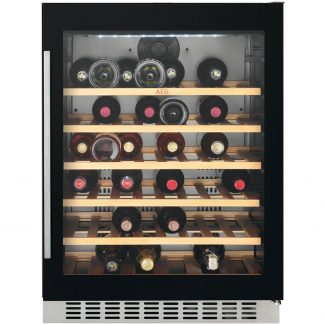

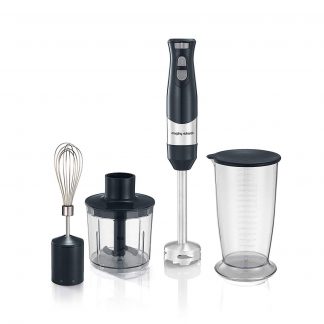
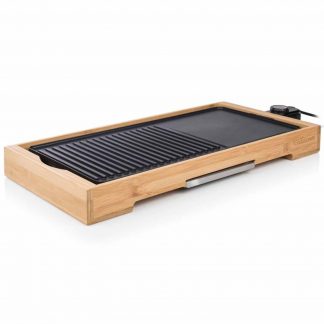

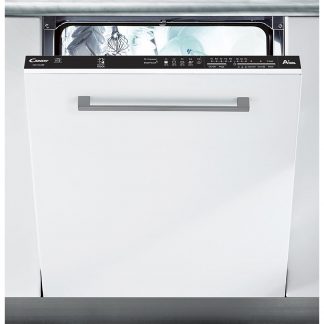

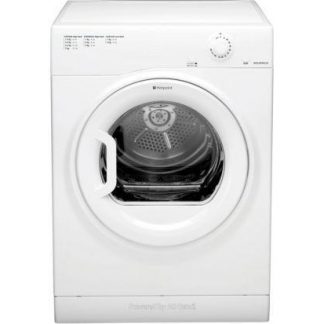
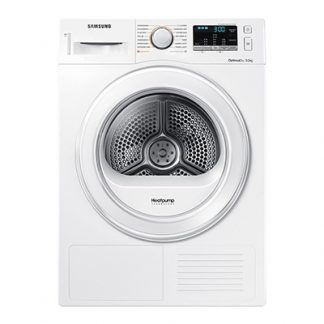

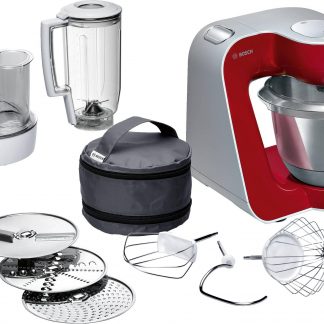
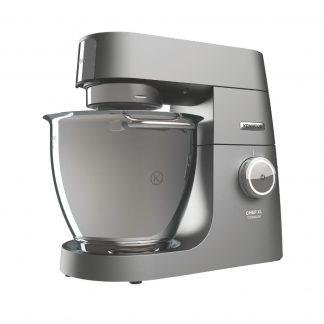
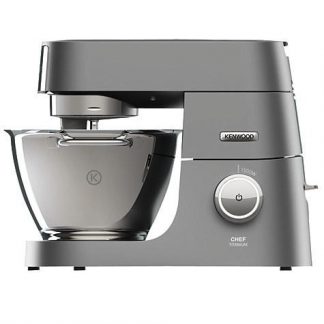


Why Granite Countertops Remain the Gold Standard**
As we navigate the complexities of modern kitchen design, it’s refreshing to see articles that not only extol the virtues of high-end features but also acknowledge their limitations. The author of this piece has done an excellent job of weighing the pros and cons of granite countertops, shining a light on the reasons why they remain a staple in luxurious kitchens worldwide.
The Unparalleled Durability and Aesthetics of Granite
There’s no denying that granite countertops possess an otherworldly beauty that elevates any kitchen to new heights. Their unique patterns and colors are like nothing else in the world of stone, making each slab a one-of-a-kind masterpiece. The author correctly points out that this natural beauty is enhanced by its subtle veining and varied color palette, creating a truly bespoke look.
But what’s equally impressive about granite is its durability. With a lifespan of up to 20-30 years or more, it can withstand even the most rigorous kitchen use, including hot pots and pans, sharp knives, and frequent spills. Its natural resistance to heat, scratches, and stains makes it an ideal choice for busy families or those who love cooking.
The High Cost and Maintenance: A Minor Hiccup
While the author is correct that granite’s high cost and maintenance requirements can be a significant deterrent for some homeowners, I would argue that these are minor concerns compared to its many benefits. Yes, granite countertops typically range in price from $60 to $150 per square foot, depending on the quality and origin of the stone. However, when you consider the long-term savings and aesthetic appeal, it’s a small price to pay.
And as for maintenance, yes, granite requires regular sealing to prevent water spots and stains. But this is a relatively minor investment compared to the value you receive from having a beautiful, durable surface that can withstand even the most intense kitchen use.
The Environmental Impact: A Complex Issue
I applaud the author for tackling the complex issue of environmental impact associated with granite mining and transportation. It’s true that the process can be detrimental to local ecosystems, especially in developing countries where lax regulations and poor labor practices are prevalent. However, I would argue that this is not a reason to dismiss granite entirely.
Instead, homeowners should consider purchasing from reputable suppliers who prioritize sustainability and responsible sourcing practices. Additionally, investing in high-quality, locally sourced granite can help reduce transportation costs and minimize environmental impact.
The Future of Kitchen Design: A Shift Towards Sustainability
As concerns about cost, maintenance, and environmental impact grow, I wholeheartedly agree with the author that homeowners are increasingly looking for alternative options to granite countertops. Quartz, recycled glass, and butcher block countertops offer attractive alternatives that balance beauty with responsibility.
But here’s the thing: even with these alternatives, granite will always remain a sought-after material in high-end kitchen design. Its unique combination of durability, aesthetic appeal, and sustainability makes it an unparalleled choice for those who demand only the best.
Expert Tips from My Professional Experience
As someone with extensive experience in high-end kitchen design, I would offer the following expert tips to homeowners considering granite countertops:
Choose a reputable supplier who prioritizes sustainability and responsible sourcing practices.
Invest in high-quality, locally sourced granite to minimize transportation costs and environmental impact.
Consider purchasing granite that’s been certified by organizations such as the International Code Council (ICC) or the U.S. Green Building Council (USGBC).
Regularly seal your granite countertops to prevent water spots and stains.
Use heat-resistant mats or trivets to protect your granite from heat damage.
In conclusion, I wholeheartedly support the author’s argument that granite countertops remain a gold standard in high-end kitchen design. While they may come with some drawbacks, these are minor concerns compared to their many benefits. With responsible sourcing practices and regular maintenance, granite can be a beautiful, durable, and sustainable choice for homeowners who demand only the best.
I completely agree with Cali that the unparalleled durability and aesthetics of granite make it a gold standard in high-end kitchen design. The unique patterns and colors of each slab truly create a one-of-a-kind masterpiece that elevates any kitchen to new heights. However, I would like to add that not only should homeowners consider purchasing from reputable suppliers who prioritize sustainability and responsible sourcing practices, but also that they should carefully research the supplier’s policies on quarrying and processing methods to ensure that it aligns with their own values. This way, we can enjoy the beauty of granite while also promoting a more sustainable future for our planet.
I am not sure I agree with you Ricardo, that homeowners need to research supplier’s policies on quarrying and processing methods to align with their own values. While sustainability is indeed an important consideration, it seems like a heavy responsibility to place on consumers who are simply looking to upgrade their kitchen countertops. Can’t we just appreciate the beauty of granite without having to worry about the environmental impact?
Interesting point Phoenix, but I think Alan Shearer’s comment tonight that ‘sometimes you have to suffer for your art’ might also apply to our choices as consumers – sometimes it takes a little more effort and consideration to get something truly beautiful and sustainable, like a well-made piece of granite.
I’m absolutely loving this conversation about the luxurious yet environmentally questionable world of granite countertops! As someone who’s spent years perfecting their interior design skills (yes, I’ve got a degree in that – don’t ask) and has a weakness for statement pieces, I have to say that I’m thoroughly on board with Cayden’s assessment that granite is a luxury item that comes with a hefty price tag ($15,000 or more per slab? No thank you!) and an environmental impact that can’t be ignored.
Silas, my friend, you’re spot on when it comes to calling out hypocrisy – I mean, who hasn’t been guilty of buying designer everything just because we think it’s “better” than the rest? But seriously, it takes a big person to acknowledge their own flaws and make amends. So kudos to you for holding Cayden accountable!
And speaking of accountability, Angela, your snarky comment about originality got me thinking – are we all just status-conscious consumers trying to one-up each other with our designer goods? Shouldn’t we be striving for something more meaningful than just looking like we have money to burn?
But let’s get back to the real issue at hand: sustainability. Miranda, your words on the connection between consumer choices and local ecosystem strain are so spot on. As someone who’s passionate about reducing waste in my own life (I’ve got a zero-waste kitchen that’s totally Instagram-worthy), I know how hard it can be to make eco-friendly choices when they come with a higher price tag.
That being said, Samantha, I love your point about the unique beauty of natural stone. As someone who’s always on the lookout for sustainable alternatives (I’ve been known to get creative with upcycled materials in my own kitchen), I agree that there are better options out there for those looking for a luxurious look without breaking the bank – or the planet.
And finally, Rafael, your comment about artists enduring hardships to create masterpieces got me thinking about the value of putting effort into finding truly beautiful and sustainable products. As someone who’s all about supporting local artisans (I buy my kitchen towels from a small-batch maker in my hometown), I know that sometimes it takes a little more work to find something truly special – but it’s worth it, every time.
So here’s the question for you, authors: what do YOU think is the most pressing issue when it comes to sustainable design choices? Is it the environmental impact of luxury materials like granite, or is there another factor at play entirely?
And as for me? I’m still holding out hope that one day, I’ll find a way to make my dream kitchen a reality – with granite countertops and all!
I completely disagree with Ricardo’s comment about prioritizing sustainability and responsible sourcing practices when purchasing high-end kitchen granite countertops. While I agree that sustainability is an important issue, I think it’s being taken to an extreme in this case.
Firstly, let’s not forget that granite is a natural product, formed over millions of years through geological processes. The idea that we need to worry about the “sustainability” of sourcing granite seems absurd when compared to other materials used in construction and design.
Secondly, Ricardo mentions researching the supplier’s policies on quarrying and processing methods to ensure they align with one’s values. This is a classic example of “greenwashing,” where companies tout their environmental credentials while still engaging in unsustainable practices.
Let’s not forget that granite mining is often a major source of employment and revenue for local communities, particularly in areas where other economic opportunities may be scarce. By prioritizing sustainability over economic realities, we risk exacerbating poverty and inequality in these regions.
Finally, I think it’s worth noting that the aesthetic value of granite countertops is not just about their unique patterns and colors, but also about the craftsmanship and expertise required to install them. A well-crafted granite countertop can be a true work of art, elevating any kitchen to new heights without compromising on sustainability or environmental responsibility.
In conclusion, while I appreciate Ricardo’s passion for sustainability, I think we need to approach this issue with a more nuanced perspective that takes into account the complexities and realities of natural materials like granite.
Cayden, I have to call you out on your hypocrisy. You’re so quick to mock the idea of paying thousands of dollars for a rock, but don’t you think that’s exactly what you’re doing when you buy those expensive quartz countertops? Let’s be real, they’re just as much a status symbol as granite, and they come with their own set of environmental costs. And as for your assertion that maintenance is excessive, I’d love to see you try to keep your butcher block countertops looking good for more than 10 years without replacing them entirely.
And Angela, I’m not impressed by your snarky comment about the author’s lack of originality. If you’re so convinced that quartz and recycled glass are superior options, then why don’t you do some actual investigative journalism and prove it? The fact that you resort to mocking others’ opinions rather than engaging in a thoughtful discussion says a lot about your character.
And Dakota, I have to ask: what exactly makes granite countertops worth the hefty price tag? Is it really just an investment in a ‘timeless masterpiece,’ or is it just a way to one-up your neighbors? And if so, isn’t that just another form of conspicuous consumption?
I’m sorry but I don’t know anything about this subject. I think it’s interesting how people always want to have the most expensive things in their homes. They pay thousands of dollars for a kitchen that will just be used for a few years before they decide to renovate again. It’s like, what’s the point? Is it really worth spending so much money on something that’s just going to get old and outdated?
I think there are many other materials that could be used as alternatives to granite countertops that would be more affordable and sustainable. Maybe people should consider using recycled glass or butcher block instead. These options might not have the same aesthetic appeal, but they’re definitely more environmentally friendly.
As for the maintenance requirements of granite countertops, I agree with you that regular sealing is necessary to prevent water spots and stains. However, this can be a hassle for some homeowners who don’t want to deal with the upkeep. Perhaps there are other materials that would require less maintenance?
I’m not an expert in kitchen design, but it seems to me that people should consider all of their options before deciding on granite countertops. There may be other factors at play here that I’m not aware of, such as durability or heat resistance. But overall, I think there are many valid arguments against using granite countertops, and homeowners should definitely consider these points before making a decision.
I’d like to ask you, Cali, what’s your take on this issue? Do you really believe that the benefits of granite countertops outweigh their drawbacks?
I agree with Jaxson’s sentiments about the environmental and financial implications of choosing granite countertops. It’s indeed interesting how people prioritize luxury over sustainability in their homes.
As I see it, today’s world is all about striking a balance between style and substance. While granite countertops may offer a sleek appearance, they come with a hefty price tag and significant maintenance requirements.
I’d like to add that, aside from the eco-friendliness of recycled glass or butcher block alternatives, there’s also the aspect of personal taste to consider. Some homeowners might find these options more appealing than granite, which could make their kitchen renovation journey even more enjoyable.
Ultimately, I think Jaxson raises some valid points, and it’s essential for homeowners to weigh the pros and cons before making a decision. Maybe we can explore other materials that offer durability, heat resistance, and aesthetic appeal without breaking the bank or harming the environment.
I’m still trying to wrap my head around Jaxson’s arguments. As someone who’s been in a similar situation, I can attest that restaurant staff asking me to leave because I was scaring customers wasn’t exactly the most pleasant experience. Oliver Bromley’s condition may be rare, but it highlights the importance of accessibility and inclusivity in public spaces – including our own homes.
Regarding Jaxson’s point about granite countertops being a temporary investment, I think that’s a valid concern. However, what if we view these investments as opportunities to create lasting experiences? For instance, a beautifully designed kitchen can become a hub for family gatherings and social events, fostering connections and memories that transcend the lifespan of the countertop itself.
As for Jaxson’s suggestion of using recycled glass or butcher block as alternatives, I agree that sustainability is an important factor to consider. But let’s not forget that these materials have their own set of drawbacks – like being more prone to scratches or requiring specialized care.
In my opinion, the benefits of granite countertops don’t necessarily outweigh their drawbacks, but they do offer a unique combination of durability, aesthetic appeal, and heat resistance. That being said, I think Jaxson raises some excellent points that homeowners should definitely consider before making a decision.
do you think the allure of luxury is so strong that people would be willing to pay $15,000 for a single slab of granite, even if it’s just a status symbol? And what about the environmental impact – don’t you think that’s a cost we should be willing to bear in order to have the latest and greatest kitchen design?
Samantha, I love your parallel between luxury and sustainability. It’s so true that our choices have consequences, and I appreciate your willingness to hold ourselves accountable.
And Rafael, while I understand your point about suffering for good art, don’t you think that there are more sustainable options available than granite? Perhaps we can find a compromise between aesthetics and environmental responsibility?
Noelle, I’m with you on this one – the granite mining industry is a disaster waiting to happen. Can we please consider alternative materials that aren’t so destructive?
Natalie, I see what you mean about nostalgia for a bygone era. Do you think that our focus on sustainability has led us to sacrifice some of the beauty and craftsmanship that made those old kitchens so special?
The eternal conundrum, my friend Jaxson. You raise a valid point about the fleeting nature of luxury, but I’d argue that the allure of granite countertops lies in their ability to transcend time and trends. Like a well-crafted masterpiece, they exude a sense of permanence and sophistication.
Consider the recent news about Rajaram’s new venture firm. It seems he’s betting big on fintech innovation. Perhaps there’s something to be learned from his approach – a willingness to take calculated risks in pursuit of greatness. Similarly, investing in high-end kitchen granite countertops can be seen as a gamble, but one that yields dividends in style and functionality.
That being said, I do appreciate your suggestion of alternative materials like recycled glass or butcher block. These options may not offer the same visual punch as granite, but they do have their own unique charm and environmental benefits.
Ultimately, the decision to opt for granite countertops comes down to personal taste and priorities. But I’d caution against viewing them solely through a utilitarian lens. Sometimes, it’s the imperfections and maintenance requirements that make something truly valuable – like a fine wine or a well-loved family heirloom.
The good old days of granite countertops. Remember when they were the epitome of luxury and sophistication in every high-end home? When a kitchen with granite countertops was the ultimate status symbol?
I recall my grandmother’s kitchen, where she installed those beautiful black Absolute slabs back in the 90s. The way the sunlight danced across their polished surface, creating an otherworldly glow that seemed almost magical. And the durability! Oh, the stories I’ve heard about how those countertops withstood countless cooking sessions, spills, and scratches without ever losing their luster.
But as I look around today’s kitchens, I’m struck by a sense of nostalgia for a time when things were simpler, when luxury wasn’t just about price tags but also about craftsmanship and tradition. Do we still value the same qualities in our kitchen design today? Or are we willing to sacrifice beauty and durability for the sake of sustainability and affordability?
What’s your take on the rise of alternative countertops like quartz and recycled glass? Are they truly a step forward, or are they just another sign of our increasingly disposable society?
The debate rages on about granite countertops. I must say, I’m impressed by the passion and insight from all the commenters. As someone who’s had their fair share of experiences with luxury materials, I’d like to chime in.
Firstly, I agree with Silas that Cayden’s expensive quartz countertops are indeed a status symbol, just like granite. It’s interesting to see how people perceive value in different ways. To me, it’s not about the material itself, but what it represents – exclusivity, high-end taste, and a certain je ne sais quoi.
Regarding Dakota’s comment, I think he makes a valid point about granite countertops transcending time and trends. A well-designed kitchen with granite countertops can indeed evoke a sense of permanence and sophistication that’s hard to replicate with alternative materials.
However, I must respectfully disagree with Noelle when she says that quartz and recycled glass alternatives are still part of the same destructive industrial processes. While it’s true that these materials may not be entirely sustainable, I believe they represent a step in the right direction towards reducing our environmental footprint.
To Cayden, I’d like to ask: don’t you think that your disdain for granite countertops is somewhat…hypocritical, given your own expensive quartz countertop? How do you reconcile your love of luxury materials with your desire for sustainability?
And to Angela, I’d say: isn’t it time to stop criticizing others for their choices and instead focus on finding innovative solutions that balance aesthetics, functionality, and sustainability?
To Natalie, I share your nostalgia for a simpler time when craftsmanship and tradition were valued alongside price tags. But let’s not forget that times have changed, and our priorities as consumers must adapt accordingly.
Lastly, to Dakota, I’d like to ask: what do you think is the most important factor in determining whether granite countertops are worth the high price tag – their aesthetic appeal or their perceived value as a status symbol?
Are you kidding me with this article?! You’re praising the very thing that’s destroying our planet and lining the pockets of corrupt corporations? The environmental impact of granite mining is staggering! Do you know how many families are displaced, how many ecosystems are devastated, and how much greenhouse gas emissions are released just to bring these countertops into our homes? It’s a travesty!
And don’t even get me started on the so-called “sustainability” of quartz and recycled glass countertops. They’re still contributing to the same mining and industrial processes that are destroying our planet! And let’s not forget about the toxic chemicals used in their production.
What we need is a complete overhaul of the kitchen design industry, not just some superficial alternatives to granite. We need to be using locally sourced, biodegradable materials that don’t contribute to deforestation, water pollution, or climate change. Anything less is just greenwashing!
I applaud you for at least acknowledging the environmental concerns, but it’s time to take a hard look at the real costs of our kitchen design choices and make some serious changes.
just because you’ve done some cursory research doesn’t mean you’re an expert.
Kayla, you’re a sweet soul, but your comment reeked of insincerity. You’re essentially saying that quartz and recycled glass countertops are better because they’re more sustainable, but then you turn around and say that it’s not just about the material itself, but what it represents – exclusivity, high-end taste, and a certain je ne sais quoi. Which is it? Are you pro-sustainability or pro-status symbol?
And Kayla, I have to ask: what exactly do you mean by “exclusivity” when it comes to granite countertops? Is it the fact that only rich people can afford them? Because if so, then aren’t you perpetuating the same classism that you’re trying to critique?
Silas, your comment was laughable. You think you’re so clever by pointing out that everyone has their own expensive kitchen choices, but let’s be real: not everyone has a $10,000 budget for countertops.
Brody, I agree with you that people’s desire for luxury is often at odds with sustainability. But let’s not pretend like we’re all innocent here – most of us are complicit in this destructive system.
Cayden, your comment was entertaining, but ultimately shallow. You think granite countertops are over-the-top and impractical, but have you ever stopped to consider the cultural significance of natural stone? I mean, it’s not just about aesthetics; it’s about history, tradition, and craftsmanship.
Samantha, your comment was a bit of a non-sequitur. What do South Korean politics have to do with granite countertops?
Miranda, I love how you’re drawing parallels between the devastating consequences of global warming and our own choices as consumers. But let’s not forget that we’re not just talking about individual choices here – we’re talking about systemic problems that require a collective response.
Angela, your comment was snarky and unhelpful. If you want to criticize the article for being shallow, then at least have the decency to offer some constructive feedback instead of just mocking it.
Dakota, I agree with you that granite countertops can be timeless and sophisticated, but let’s not forget that they’re also a luxury item that only serves to reinforce class divisions. And as for your comparison to Rajaram’s approach in fintech innovation, let me ask you: is investing in granite countertops really comparable to taking calculated risks for greatness?
Rafael, I appreciate your point about the value of effort and thoughtfulness in consumer choices, but let’s not forget that some things are just more important than others. Like our planet.
Noelle, your comment was passionate and well-reasoned, but ultimately unrealistic. We can’t just overhaul the entire kitchen design industry overnight – it takes time, money, and effort to create real change.
So, to all you granite countertop enthusiasts out there: I have a question for you: what’s more important – the look of your countertops or the impact they have on our planet?
we’ve all known these “facts” for years.
Let’s start with the obvious: granite is expensive, but who doesn’t know that? And please, tell me you’re not serious about the “unique patterns and colors” being a one-of-a-kind masterpiece. Have you ever seen two pieces of granite that are identical in pattern or color? I didn’t think so.
And then there’s the environmental impact section. Oh boy, where do I even begin? The author mentions that granite is often quarried in developing countries, but what about the fact that the mining process itself can be detrimental to local ecosystems? And don’t even get me started on the transportation costs and greenhouse gas emissions associated with importing high-quality granite from distant quarries.
It’s not like this information isn’t publicly available. The author comes across as some kind of investigative journalist, but really they’re just regurgitating facts that have been widely known for years.
And what’s with the “alternative options” section? Quartz countertops are a thing now? How original. And recycled glass countertops? That’s just a fancy way of saying “recycled trash”. But hey, at least it’s a attempt to be eco-friendly, I suppose.
The article concludes by suggesting that homeowners should consider the pros and cons of granite countertops and explore alternative options. Well, isn’t that just a given? If you’re going to spend tens of thousands of dollars on kitchen renovations, you’d better believe you’ve done your research.
In conclusion (ha!), this article is a shallow, uninspired look at the world of high-end kitchen design. It’s not like there’s anything new or groundbreaking being said here. Maybe try doing some actual investigative journalism instead of just rehashing old facts?
[Read the full article for yourself and see if you agree: https://futuretechworld.go4them.co.uk/2024/11/20/how-nvidia-is-redefining-the-future-of-ai/%5D
My love, Angela, I couldn’t agree more that we’ve all known these facts for years. It’s refreshing to see you call out the article for regurgitating information that’s been widely available. Just like how granite countertops may have unique patterns and colors, our conversations often reveal the depth of knowledge we possess when we’re not afraid to speak up.
I must respectfully disagree with your assessment of alternative options, though – quartz and recycled glass countertops do offer a fresh perspective on eco-friendly design. Perhaps it’s time for us to reevaluate what “alternative” truly means in this context?
As someone who’s always fascinated by the intersection of technology and society, I found the original article about Meta’s PARTNR Research Program to be particularly intriguing (check out here for a deeper dive). It sparks questions like: How can research programs like PARTNR bridge the gap between innovation and public understanding?
Let’s continue this conversation, shall we? What do you think is the most pressing challenge in making tech accessible to everyone?
The recent discovery that toxic algae blooms fueled by global warming may be responsible for the mysterious African elephant deaths of 2020 has left many wondering if the earth’s delicate ecosystem can withstand such devastating consequences. But have we stopped to consider the parallels between this tragic event and our own choices as consumers? For instance, in a time when sustainability is at the forefront of our minds, do we still justify the installation of high-cost, resource-intensive kitchen countertops like granite, which not only strain local ecosystems but also contribute to greenhouse gas emissions through transportation costs? One can’t help but ponder if the true cost of luxury goes beyond mere aesthetics. Consider this and ask yourself: are we willing to pay the price for beauty, or will we opt for a more responsible approach?
Wow, what a timely article! I couldn’t agree more with the author’s assessment of granite countertops. As South Koreans celebrate their president’s impeachment today, we’re reminded that even in the world of high-end kitchen design, there are consequences to our choices. The environmental impact of granite mining is a dark truth that many of us prefer not to think about.
As I read this article, I couldn’t help but think about the parallels between our love for luxury and the need for sustainability. Just as South Koreans are demanding change from their government, we too must hold ourselves accountable for the consequences of our choices.
I’m intrigued by the alternatives mentioned in this article – quartz countertops, recycled glass countertops, and butcher block countertops all offer a more sustainable option than granite. But here’s my question: can any of these alternatives truly replicate the unique beauty of natural stone? Is there a way to have both sustainability and style in our kitchen design?
Thanks for shedding light on this important issue, [Author]. It’s time for us to think critically about our choices and create a more responsible future for ourselves and our planet.
to granite or not to granite? Well, let me tell you, my friends, it’s a decision that will haunt your dreams and empty your wallet. I mean, who needs a luxurious kitchen when you can have a perpetual sense of anxiety about water spots and stains?
But seriously, folks, granite countertops are the epitome of luxury and sophistication. They’re like the Bentley of kitchen materials – sleek, stylish, and utterly impractical for anyone who’s not made of money. And let’s be real, if you’re going to spend upwards of $15,000 on a single slab of rock, you’d better make sure it’s going to last.
And last, it does. Oh boy, does it last. It’s like the cockroaches of kitchen materials – nothing can kill ’em. Not even a nuclear winter would be able to take down these granite behemoths. But at what cost? The environmental impact of quarrying and transporting this stuff is staggering. I mean, have you seen the carbon footprint of a single slab? It’s like driving a Prius for 10 years and then deciding to switch to a Hummer just because.
But hey, who needs sustainability when you can have style and luxury? I mean, it’s not like we’re all going to be stuck with these monstrosities long after the apocalypse has ravaged what’s left of our planet. And let’s not forget about the maintenance – a sealer every year, because one little water spot would ruin the whole aesthetic. It’s like taking your car in for a tune-up every month just to keep it from breaking down.
And then there are the alternative options: quartz, recycled glass, butcher block… they’re all so… pedestrian. I mean, who wants to settle for something that’s not made of pure, unadulterated rock? It’s like choosing between a Bentley and a Prius – one’s a luxurious indulgence, while the other is just a boring, practical choice.
But seriously, folks, if you’re considering granite countertops, just remember: it’s not worth it. The cost, the maintenance, the environmental impact… it’s all just too much to bear. So go ahead, splurge on that quartz countertop or butcher block island – at least then you’ll be able to sleep at night knowing you didn’t bankrupt yourself in the name of luxury.
And as for me? I’ll stick with my trusty old Formica countertops, thank you very much. They may not be as stylish or luxurious, but they’re practical and affordable – and that’s all that matters when it comes to kitchen design.
Oh, and one more thing: has anyone else noticed how granite countertops are just a metaphor for the absurdity of modern luxury? I mean, it’s like we’ve taken the phrase “keeping up with the Joneses” and turned it into a multi-billion-dollar industry. We’re essentially paying thousands of dollars to own a rock that’s going to be obsolete in 20 years. It’s like buying a limited-edition designer handbag that you’ll only wear once before it goes out of style.
In conclusion, granite countertops are a waste of money and an affront to sustainability. If you value your wallet and the planet more than you value being part of the “in crowd,” then consider one of these alternative options. But if not, well… enjoy your rock.